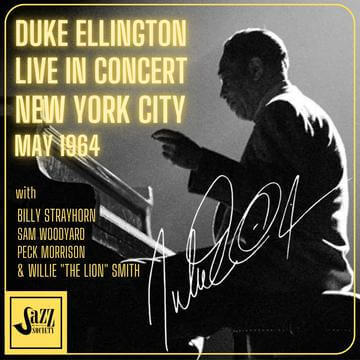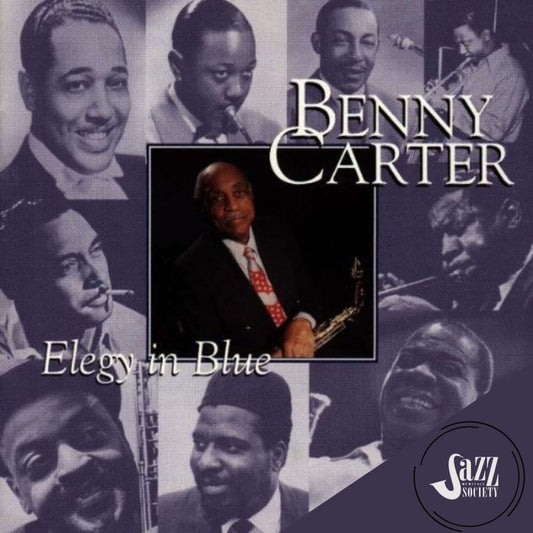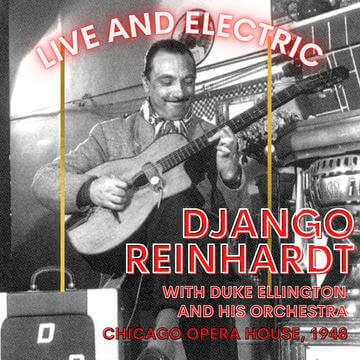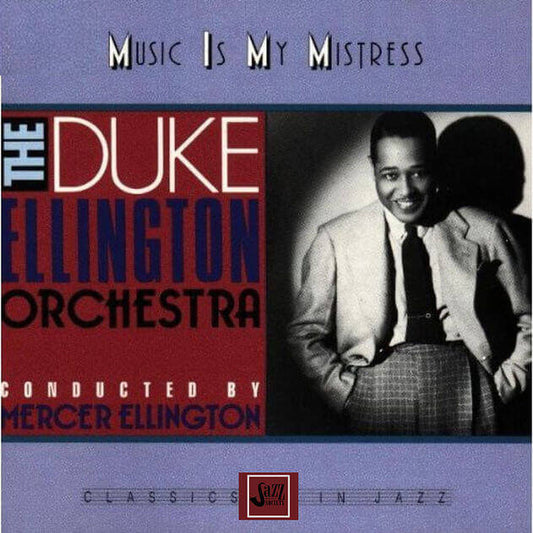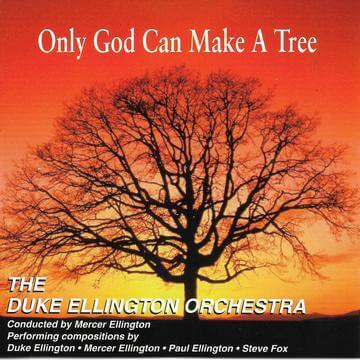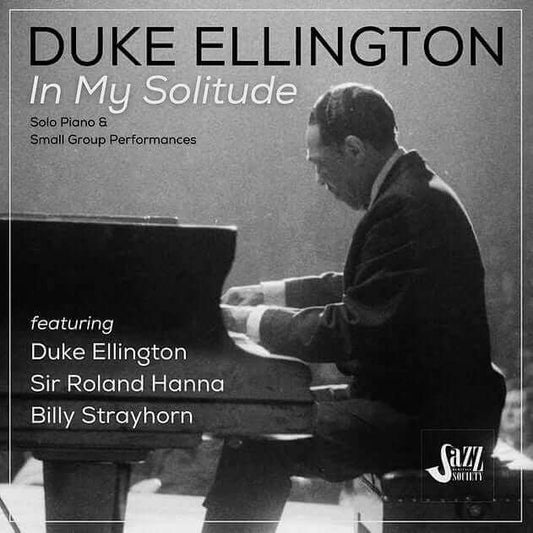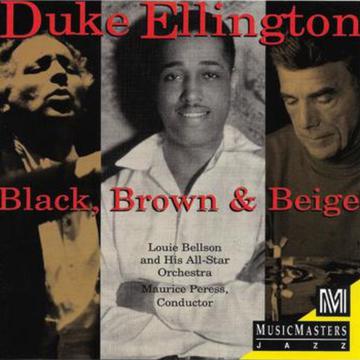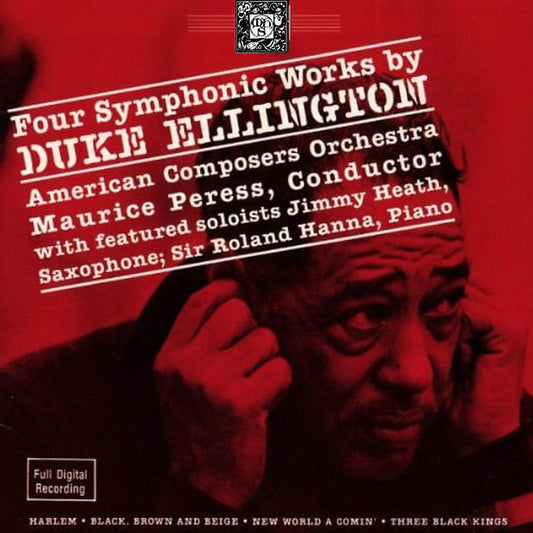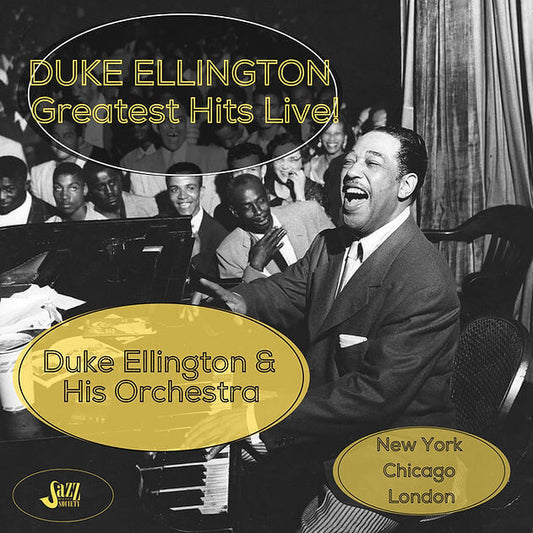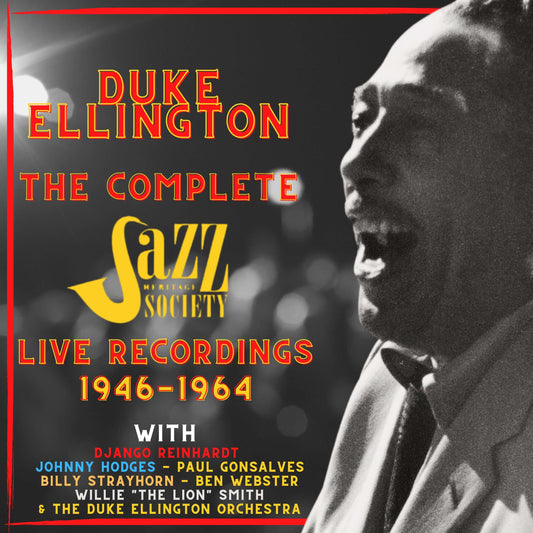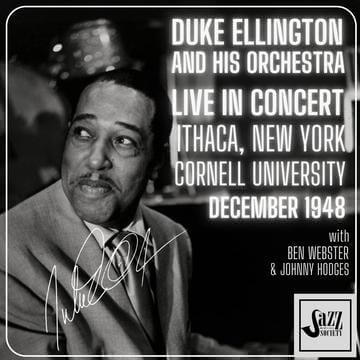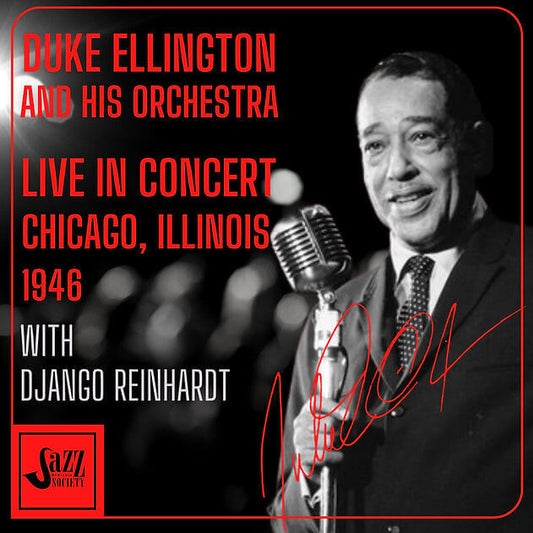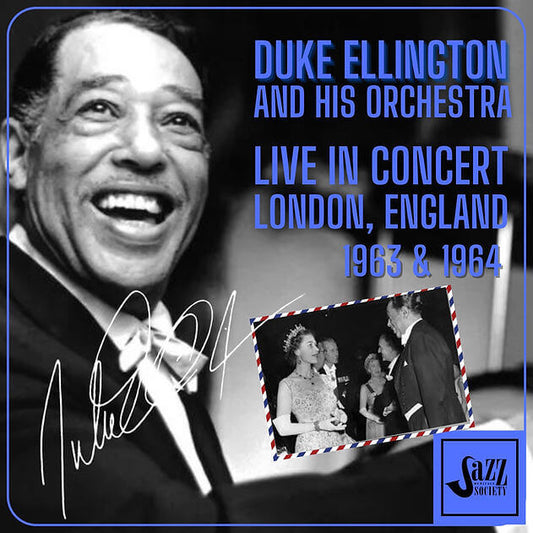DUKE ELLINGTON (1899 – 1974)
Duke Ellington: Live in Concert, New York City - May 20, 1964
Duke Ellington: Live in Concert, New York City - May 20, 1964
Duke Ellington was so brilliant as a bandleader, arranger and composer that sometimes his piano playing was taken for granted. He gave few solo concerts in his career, which makes this particular Jazz Heritage Society disc something special. --All Music Guide
Regular price
$0.00
Regular price
Sale price
$0.00
Unit price
/
per
STREAMING
By 1964, when this recital was given, Duke Ellington had been a famous name in jazz for nearly four decades. He was probably best known as a charismatic bandleader and, in popular terms, as a songwriter. (The high title of 'composer' was not yet so readily on the public's lips.) Some knew him, too, as an arranger, the greatest jazz had produced. Fewer, even more discerning, recognized him as a superior jazz pianist. Although it is seldom mentioned, it is a fact that during the so-called Big Band Era a high proportion of the better jazz bands were led by pianists. One may recall the brothers Fletcher and Horace Henderson, Earl Hines, Claude Hopkins, Bennie Moten, Count Basie, Luis Russell, Alphonso Trent, Jay McShann, Charlie and Buddy Johnson, and later Stan Kenton and Claude Thornhill. Even Fats Waller toured at the head of a big band periodically. And from the time he opened at the Cotton Club in 1927 until his death in 1974, Duke Ellington led a big band from the piano almost continuously -- longer than anyone else in his field. He took solos in the course of his band's performances and occasionally made solo records during the 78 r.p.m. age, but Ellington was not so prominent in terms of pianistic virtuosity as Fats Waller and Earl Hines, the two major influences on jazz piano in the 1930s. He, like all the other pianoplaying leaders, saw nothing demeaning in their professional classification as "band" pianists, for theirs was a special role that required special skills -- and much first-hand experience. Ellington had arrived in New York at a time when the "stride" style of piano was paramount, and he played it well enough to be accepted by the giants of the Harlem school, such as James P. Johnson, Willie "The Lion" Smith and Fats Waller. Carolina Shout and other Johnson compositions were among the numbers he had first learned to play in Washington by the time-honored method of slowing down the mechanism of a player-piano and following the slowly descending keys the piano rolls dictated.
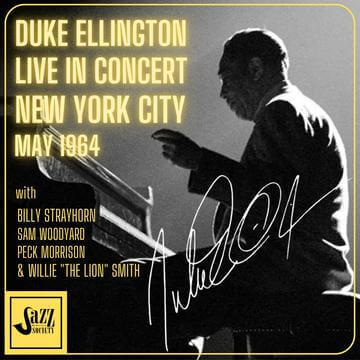
Duke Ellington was so brilliant as a bandleader, arranger and composer that sometimes his piano playing was taken for granted. He gave few solo concerts in his career, which makes this particular Jazz Heritage Society disc something special.
All Music Guide
11/29/2024
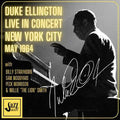
00:00
/
00:00
•
skip_previous
play_circle_outline
pause_circle_outline
skip_next
Also Available from DUKE ELLINGTON (1899 – 1974)
-
STREAMING
Benny Carter: Elegy in Blue
ExploreRegular price $0.00Regular priceUnit price / per -
STREAMING
Django Reinhardt with the Duke Ellington Orchestra: Live ...
ExploreRegular price $0.00Regular priceUnit price / per -
STREAMING
DUKE ELLINGTON ORCHESTRA: Music Is My Mistress - conducte...
ExploreRegular price $0.00Regular priceUnit price / per -
STREAMING
DUKE ELLINGTON ORCHESTRA: Only God Can Make a Tree - cond...
ExploreRegular price $0.00Regular priceUnit price / per -
STREAMING
DUKE ELLINGTON: In My Solitude: Solo Piano and Small Gr...
ExploreRegular price $0.00Regular priceUnit price / per -
STREAMING
Duke Ellington: Black, Brown & Beige - Louie Bellson & Hi...
ExploreRegular price $0.00Regular priceUnit price / per -
STREAMING
Duke Ellington: Four Symphonic Works - American Composers...
ExploreRegular price $0.00Regular priceUnit price / per -
STREAMING
Duke Ellington: Greatest Hits Live! (The Library of Congr...
ExploreRegular price $0.00Regular priceUnit price / per -
STREAMING
DUKE ELLINGTON: HIS COMPLETE JAZZ HERITAGE SOCIETY LIVE R...
ExploreRegular price $0.00Regular priceUnit price / per -
STREAMING
Duke Ellington: Live at Cornell University, 1948
ExploreRegular price $0.00Regular priceUnit price / per -
STREAMING
Duke Ellington: Live in Concert, Chicago, Illinois 1946
ExploreRegular price $0.00Regular priceUnit price / per -
STREAMING
Duke Ellington: Live in Concert, London, England, 1963 & ...
ExploreRegular price $0.00Regular priceUnit price / per

